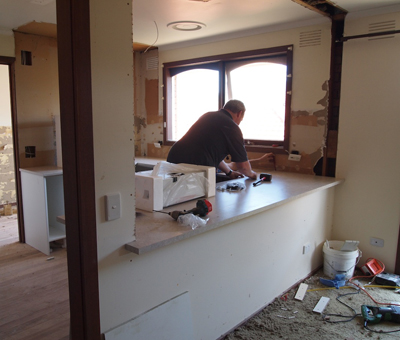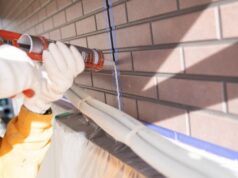
People are often unclear about what their rights are when it comes to warranties – particularly for renovations. This isn’t helped by the fact that there are a few different sorts of warranties and protections that’ll apply, nor by the fact that the mechanisms, warranty periods and systems of enforcement differ a bit between different states and territories.

It’s worth knowing what kinds of warranties you’re entitled to.
People are often unclear about what their rights are when it comes to warranties – particularly for renovations. This isn’t helped by the fact that there are a few different sorts of warranties and protections that’ll apply, nor by the fact that the mechanisms, warranty periods and systems of enforcement differ a bit between different states and territories.
Generally speaking, when you’re getting renovations done there are a few different kinds of warranties and protections in place. These are:
- Statutory / implied warranties – these relate to the products, quality of workmanship and so on, and are written into law by your state or territory government.
- Manufacturer’s warranties for products and materials
- Builders warranty insurance – this insurance is mandatory in most states, and theoretically offers financial protection for when a builder disappears, dies or becomes deregistered.
Statutory warranties or implied warranties on building work
Statutory warranties are also referred to as ‘implied warranties’ because they’re implied under state building acts and legislation. These statutory warranties are all reasonably consistent, and generally state that you have a right to expect that:
- All work done by your contractors will be carried out in accordance with all relevant laws and regulations
- Work will be done in an appropriate and skillful way
- Work willl be done as specified in plans and specifications, where they’re supplied
- Products and materials used or supplied will be good and suitable for the purpose for which they’re used
- Products and materials used will be new, unless otherwise agreed
- Your home / the renovated area should be suitable for occupation on completion of contracted works
To ensure that you’re protected as well as possible and to reduce the chance of any confusion, it’s always better to have everything you want written very clearly in your contract, down to brand and model names. Clear expectations always make things much easier both for the builder, and for yourself.
Manufacturer’s warranties and statutory consumer guarantees
Manufacturers usually provide warranties on the products, fittings and appliances they supply for your renovations. If you’re buying a new fridge, for example, it’s likely to be advertised with at least 12 months warranty, and if anything goes wrong with it during the warranty period, you probably won’t have any trouble at all getting it repaired or replaced as spelled out in the manufacturer’s warranty documentation.
One important thing worth noting here though; in Australia, consumer protection’s pretty good, and statutory warranties apply to appliances and fittings just as they do to other products (like phones, for example).
These statutory warranties apply with certain conditions (e.g. that products are used and installed as prescribed, etc.), and exist regardless of what the manufacturer’s warranty says. Where there are grounds to reasonably assume the product should last for longer than it has under the circumstances, there are processes you can follow to request a replacement, repair or refund.
For more information on what your statutory rights are in Australia and on how to request warranty service based on those rights, visit the ACCC’s Consumer Guarantees page.
Builders warranty insurance
Builders warranty insurance goes under many different names (depending on which state you’re in). In NSW, Queensland and the ACT, it’s home warranty insurance. In Victoria, it’s domestic building insurance.
The idea behind builders warranty insurance is to provide insurance protection for building work in case the builder you’ve hired dies, disappears or becomes deregistered at any time during your build or within the warranty period.
Builders warranty insurance is a bit controversial – while it’s mandatory on work above certain values in all states except Tasmania, in most places it’s quite difficult to get a successful claim. In fact, that’s the main reason why it’s no longer mandatory in Tasmania…
Queensland’s something of an exception – home warranty insurance is underwritten by the state in Queensland, and claims and disputes there are managed by the Building Services Authority (BSA).
Owner builders and warranties on workmanship
For fairly obvious reasons, if you’re an owner-builder you’re not entitled to many of the same statutory warranties you’re otherwise be protected by when you hire a building contractor. You are still entitled to statutory warranty protection for work done by contractors you employ though, and for the products you buy for your home.





